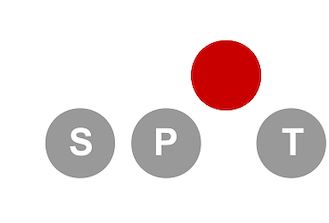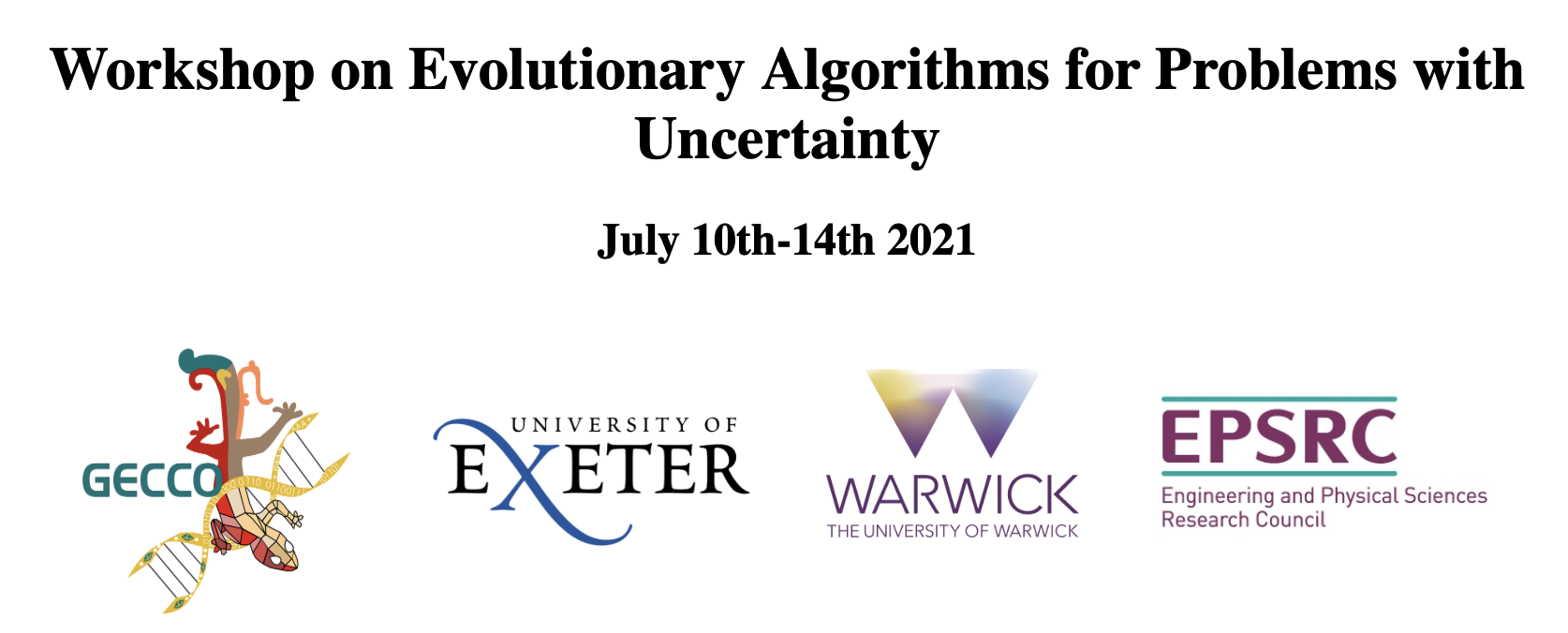
The 4th Workshop on Evolutionary Algorithms for Problems with Uncertainty http://eapwu.ex.ac.uk/
To be held as part of The Genetic and Evolutionary Computation Conference (GECCO 2021)Lille, France, July 10-14 2021.
Please note that GECCO 2021 will be held as an online/virtual-only conference. All accepted papers will be required to be presented in the form of a pre-recorded talk.
Submission opening: February 11, 2021
Submission deadline: April 12, 2021
Reviews due: April 22, 2021Decisions due: April 26, 2021
Camera-ready Material: May 3, 2021
Author registration deadline: May 3, 2021
CALL FOR PAPERS:
In many real-world optimisation problems, uncertainty is present in various forms. One prominent example is the sensitivity of the optimal solution to noise or perturbations in the environment. In such cases, handling uncertainty effectively can be critical for finding good robust solutions, in particular, when the uncertainty results in a severe loss of quality. In recent years, uncertainty in its various forms has attracted a lot of attention from the evolutionary computation community.
Optimisation problems can be categorised as one of four types, depending on the source of uncertainty:
1. robust problems, where the uncertainty arises in design or environmental variables,
2. noisy problems, where the uncertainty arises in objective space,
3. approximated problems, where the approximated objective function(s) are subject to error, and
4. dynamic problems, where the objective function(s) changes over time, and
5. Bayesian optimisation
Robust optimisation includes situations where the chosen design cannot be realised in a real-world setting without some error. Additionally, the solution may need to perform well under a set of different scenarios and/or under some assumptions of parameter drifts. Typically, explicit methods for handling this type of uncertainty rely on resampling the assumed scenario set in order to approximate the underlying robust fitness landscape. Noisy optimisation refers to problems in which the estimate of the quality of an individual is subject to some randomness, e.g. if the objective value is calculated from the output of a stochastic simulation or solver. In this case, the estimate of the expected objective value is usually based on several resamples of a given solution. However, methods that rely on resampling of solutions are often inadequate in situations where the evaluations are expensive.
These problems have been a concern for the community for a number of years, and there is a growing need for new methods to handle the various types of uncertainty in a wide variety of problem domains. In addition, the field stands to benefit greatly from new methods for assessing the performance of algorithms for optimisation in uncertain environments and development of suitable benchmark problems. This workshop is designed to bring together practitioners from different subfields in the evolutionary computing community to share their ideas and methods.
Particular topics of interest include, but are not limited to:
Efficient methods for optimisation under uncertaintyStudies of the inherent capabilities of EAs to handle different types of uncertaintyNew ranking and selections operators for optimising under uncertaintyMeta-modelling for handling uncertaintyMethods for fitness approximation under uncertaintyQuantifying the robustness of solutionsReal-World applications that suffer from various types of uncertaintyNew benchmark problems for various types of uncertaintyDesign of experiments for estimating robust designsCoping with multiple sources and forms of uncertaintyMulti-objective optimisation in uncertain contextsCasting a problem with uncertainty as a multi-objective problem
SUBMISSIONS:
Abstracts must not exceed 200 words and the maximum length of papers is 8 pages (excluding references). We also welcome position papers of up to 2 pages (including references) showcasing exciting exploratory and preliminary results. Authors should follow the GECCO Submission Instructions and submissions should be sent through the GECCO Submission Site. Accepted papers will be published in the GECCO Companion Proceedings and will be presented orally at the workshop.
ORGANISERS:
Khulood Alyahya, Lecturer in Computer Science, University of ExeterJuergen Branke, Professor of Operational Research & Systems, University of WarwickJonathan Fieldsend, Professor in Computational Intelligence, University of ExeterTinkle Chugh, Lecturer in Computer Science, University of Exeter

